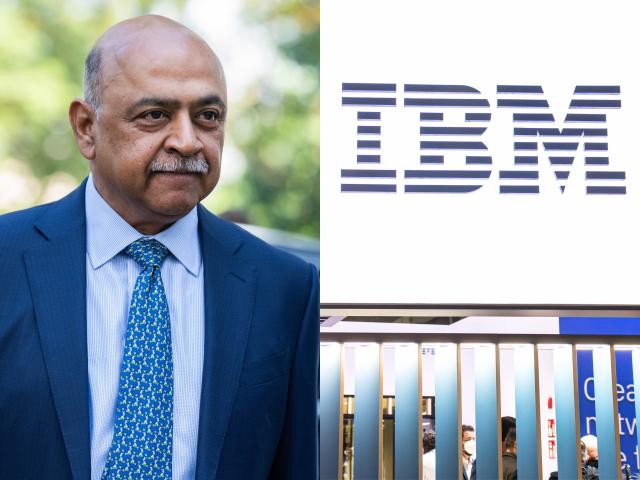Arvind Krishna, the CEO of IBM, is steering the tech giant into what could be a major comeback story in the realm of artificial intelligence (AI). After seemingly laggard moments in monetization, IBM is pivoting with newfound momentum. The re-introduction of the Watson brand underlines this strategy shift, as it positions to leverage AI for business applications.

IBM's Commanding Resurgence: How WatsonX Stands to Deliver
The WatsonX platform, a development studio unveiled in May, represents the core of this strategic pivot. Tailored for companies to refine and utilize machine learning models, the platform has shown promising financial beginnings. With "low hundreds of millions of dollars" in bookings made in just the third quarter, WatsonX stands on the cusp of what Krishna believes could be a $1 billion annual run rate.
Yet, IBM navigates a market rife with stiff competition. The enterprise AI landscape has major players like Microsoft, Google, and Amazon offering analogous services, ensuring that IBM's journey is not without hurdles. Overcoming past criticisms for its slow pace in capitalizing on its AI innovations, IBM reimagines its playbook—all while embarking on strategic divestitures, including the Watson Health unit and weather data entities to Francisco Partners.
A Paradigm Shift: Adopting AI and Hybrid Cloud in Business
Krishna reflects on his commitment to AI and hybrid cloud from his first day as CEO. Utilizing a baseball analogy, he intimates that AI was barely in the game when he began, while cloud computing had already hit its stride. Presently, cloud technology is well into its maturity, but AI is only now taking its first major steps on the field. Krishna's foresight aims to harness the explosion of data and the necessity for automation in addressing demographic shifts and overcoming inefficiencies in various sectors.
With the Biden administration's executive order casting a spotlight on the regulation of AI, Krishna voices strong support for measures that ensure AI is developed and deployed responsibly. Holding IBM to high standards, he underscores an openness to regulation, balancing innovation with accountability.
WatsonX: IBM's Distinct Advantage in a Crowded Space
Despite the ubiquity of development platforms, Krishna insists that WatsonX diverges from the pack. Beyond its flexibility in deployment, allowing customers sovereignty over their data and infrastructure choices, IBM envisions a hybrid model ecosystem where clients can blend models from various sources to suit their specific needs.
The nascent success of WatsonX is marked by its broad appeal across industries, with diverse applications surprising even IBM's seasoned team. The platform's architecture allows for integration across sectors, untethering AI from singular, monolithic applications and initiating a democratized approach to AI tooling.
Addressing the Critique and Ensuring Compliance
Krishna doesn't shy away from acknowledging the critiques around IBM's slow monetization and market capture post-Jeopardy. He concedes the initial mistake of pursuing large, complex solutions rather than modular, adaptable approaches that the market favors.
Moreover, IBM is at the forefront of responsible AI deployment, unveiling products designed to ensure models are compliant with regulatory frameworks. But it's not just about compliance; IBM also focuses on fairness and bias, aligning its monitoring mechanisms with legal standards and inviting collaboration across industries for better governance.
Navigating the Future: Upskilling Workforce and Moderating AI Expectations
As the AI landscape evolves, IBM recognizes the necessity of upskilling its workforce to pivot roles in line with innovation. A company-wide initiative saw 160,000 IBM employees engaging in AI app developments. Krishna views technology as a multiplier rather than a reductor of the workforce, positing that productivity leads to an expansion in employment.
Finally, tackling the narratives around AI, Krishna believes the existential risk posed by AI is oversensationalized, while the real understatement lies in the prodigious productivity gains it promises for bureaucratic processing in business and government.
IBM, under Krishna's leadership, seems poised not just for a comeback but for a potential leadership role in the enterprise AI market. The fusion of technology innovation, strategic business shifts, and a realistic assessment of the AI landscape paints a compelling picture of a reinvented IBM ready to capitalize on the AI revolution.







